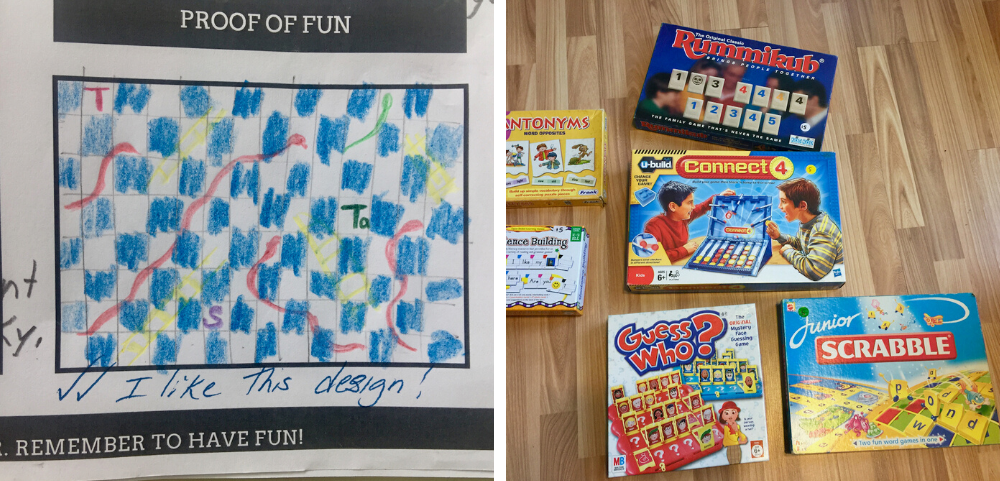CIS Family Game Night: Fun, Laughter, and Bonding for All
Most adults have fond memories of playing board games with their families - the long Monopoly matches that carried on for days, frantic card games with a sibling during a family trip, or missing a crucial game piece and replacing it with a self-made piece.
My students had the chance to play a variety of board games over a month in a project I created called “Family Game Night”. Every Monday for five weeks, my students would take home a different board game. They would play the game with their family and then return it the following week and swap with their classmates for another game.
There were a few guidelines: no cheating, read the rules, try to follow them, and have fun. Games included old classics such as “Snakes and Ladders”, “Boggle”, “Battleship”, “Guess Who” as well as math games for telling time, multiplication and division. Each week, students had to complete a game review worksheet where they highlighted 3 of the game rules, the probability of who would win and “proof of fun” - a picture or drawing of the game in action.

The benefits of kids and families playing games together are tremendous: guided instruction, practice of math skills, problem solving, strategy, cooperation, and above all, laughter and quality time spent together! They also learned the social skills needed to cheer each other on, play fair and accept that they, sometimes, lose. Concentration and memory skills were practised and tested in real-life situations, and all ages of the family could enjoy playing a new game.
Students gleefully reported back when they were able to beat an older sibling at a game. One of the greatest benefits of board games is the time spent together. One Korean parent emailed me to share, “The game “Rummikub” Yusol brought home on Monday is really exciting and fun. She said ‘I want to buy this game so I can play Rummikub with my grandparents and cousins in Korea’. We played for over an hour in our pajamas with the whole family before bedtime. This playing game homework is not only interesting but also educational.
At the end of the five weeks, we had a game afternoon where we played our favourite games from the 25 choices on offer. The added advantage to swapping the games is that there are now at least 5 “experts” who know how to play each game and can now teach their classmates. This makes the classroom resources much more valuable and also easier to take care of when everyone is invested in using them again.
Game on!